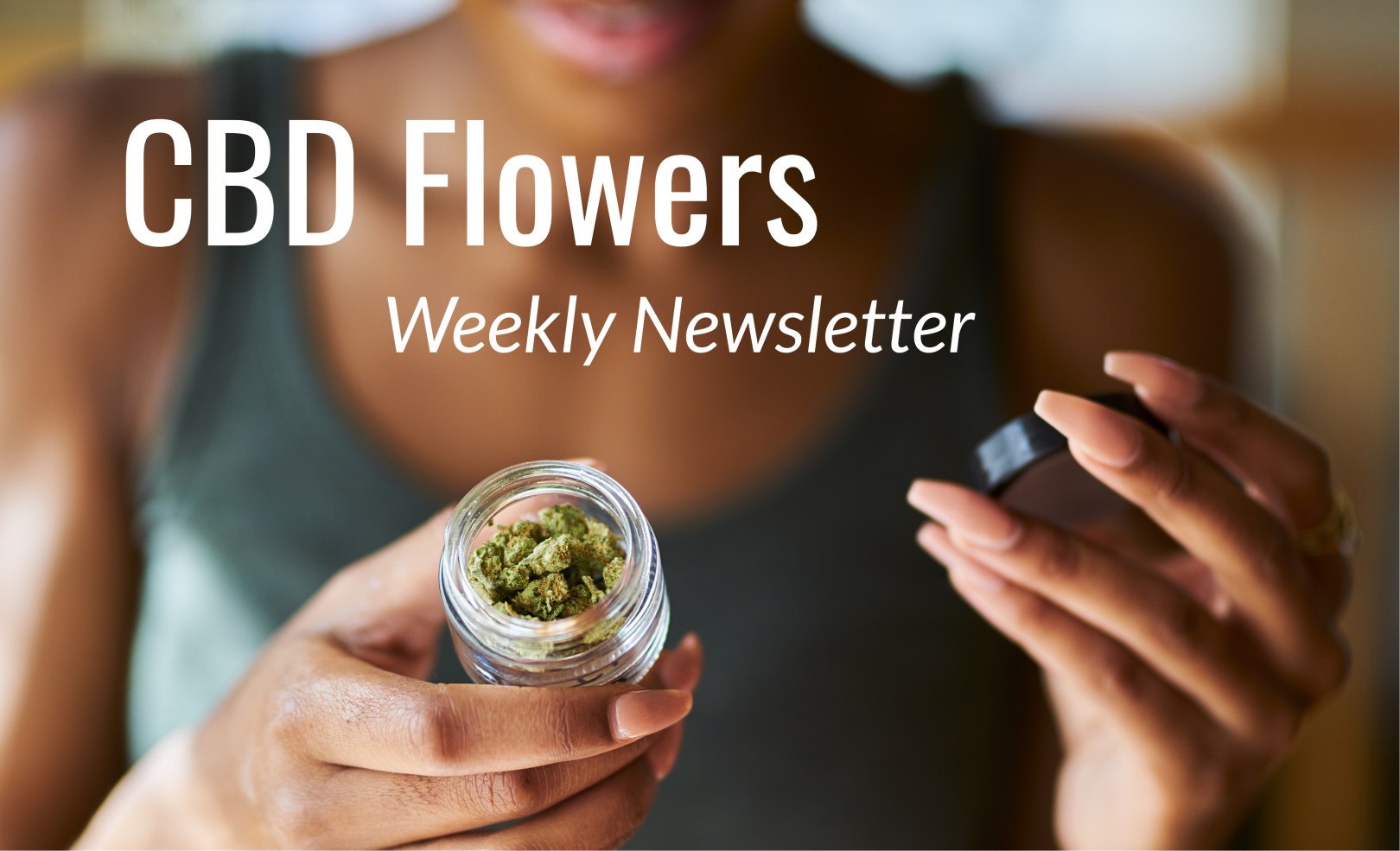Us humans aren’t the only ones who love cannabis; as it turns out, bees are highly attracted to this plant as well.
Numerous studies over the last few years show that bees are consistently drawn to cannabis pollen, which is incredible news considering their global populations have been steadily declining. If you weren’t aware, bees are just about the most important creature on earth and a good source of high quality pollen is essential for the bees to maintain their productivity, reproduce at a healthy rate, and sustain important natural and agricultural ecosystems.
To learn more about cannabis, and for exclusive deals on flowers and other products, subscribe to The CBD Flowers Weekly Newsletter
Most Recent Study – Marijuana
In a study published late last year in the Journal of Environmental Entomology, researchers at Cornell University described how bees are drawn to cannabis, but more specifically, sativa plants. The reason for this is much simpler than you would think – it’s because sativa plants are generally taller.
According to their research, cannabis farms with taller plants attract 17 times more bees on average. And of course, the larger the farm the more bees will gather there, which is incredibly beneficial for the surrounding environment. Additionally, there are 16 different varieties (discovered so far) of cannabis that can support entire bee colonies.
What’s interesting about this revelation is that cannabis lacks pretty much all of the characteristics that typically attract bees to other plants, such as vivid colors and nectary aroma/flavor. It also appears the bees prefer hemp, although they have been seen around marijuana too. Bees are not known to have an endocannabinoid system, so their preference to plants with less tetrahydrocannabinol (THC) is peculiar.
According to the study, “Plant height, on the other hand, was strongly correlated with bee species richness and abundance for hemp plots with taller varieties attracting a broader diversity of bee species. Because of its temporally unique flowering phenology, hemp has the potential to provide a critical nutritional resource to a diverse community of bees during a period of floral scarcity and thereby may help to sustain agroecosystem-wide pollination services for other crops in the landscape.”
Older Study From Colorado – Hemp
A slightly older study published in the Journal of Biomass and Bioenergy looked specifically at the relationship between different specials of bees and hemp. They found that many species, especially the common honeybee, gravitated to hemp.
For their observation, researchers set up 10 traps at a couple different industrial hemp farms in Northern Colorado and caught bees for a total of five days. During that time, they collected almost 2,000 bees from 23 different genera (species) including Melissodes bimaculata and Peponapis pruinose. However, a whopping 38% were classic honeybees. “Industrial hemp can play an important role in providing sustained nutritional options for bees during the cropping season,” researchers mentioned.
And when compared to other crops like some nearby genetically modified canola flowers, it was no competition, the bees showed a strong preference for natural hemp. Furthermore, it wasn’t just bees benefiting from the hemp pollen, but also parasites of certain bees.
Although the parasites weren’t taking the pollen directly from the hemp flowers, they were utilizing what was brought in by the bees. This indicates that hemp crops have the ability to create a diverse and dynamic ecosystem. Additional studies looking at the nutritional value of hemp pollen and if it’s a sufficient nutrient source for bee larva would further confirm this theory.
Importance of Bees
Bees are known to have many important roles in every ecosystem they inhabit. First and foremost, they’re renowned for creating high-quality food, like honey and royal jelly. Honey is one of the healthiest food you could possibly consume as it’s loaded with nutrients and antioxidants, and it has antifungal and antibacterial properties. Bee byproducts such as beeswax, propolis, and honeybee venom, are also used to manufacture various products used in the healthcare and wellness sectors.
But of course, the true greatest contribution of bees is the pollination of plants that produce just over 90% of the world’s food. Nearly every bite of food we take can be attributed to the hard work of bees. And while there are other pollinating insects out there, and even certain birds and mammals can pollinate, bees are by far the most efficient.
Over the last few decades, the number of crops that rely on pollinators has tripped, and effective pollination as proven to be beneficial for the farmers’ bottom line. Effective pollination increases the amount of agricultural produce, improves their quality and enhances plants’ resistance to damaging pests.
Pollination also helps protect and maintain entire animal and plant species within an ecosystem, and they contributed to genetic and biotic diversity. Observing bees will also give researchers an accurate assessment of the state of the environment. Their presence, absence, or quantity can indicate when there are changes in the environment.
Declining Global Populations
For the better part of the last 10 years, beekeepers across the globe have noted annual hive losses of 30 percent or more. This is waaayy more than what is considered normal, and if it continues it could be detrimental to the environment. Unfortunately, that number seems to be growing as many U.S. beekeepers are reporting losses of up 50 percent this year.
Every year, commercial beehives are transported to California for the nation’s largest pollinating event – the fertilizing of the state’s 800,000 acres of almond tree orchards. Almonds are California’s largest oversees agricultural export. On average, it takes roughly 1.6 million domesticated bees to pollinate these trees, and with the annual hive losses this number is getting increasingly difficult to accommodate.
“Other crops don’t need as many bees as the California almond orchards do, so shortages are not yet apparent, but if trends continue, there will be,” said Tim Tucker, vice-president of the American Beekeeping Federation and owner of Tuckerbees Honey in Kansas, which lost 50 percent of its hives this past winter. “Current [bee] losses are not sustainable. The trend is down, as is the quality of bees. In the long run, if we don’t find some answers, and the vigor continues to decline, we could lose a lot of bees.”
Why This Matters
This information could be very useful for ecologists trying to figure out how to curb the issue of declining bee populations, as well as environmental activists and scientist that focus on environmental patterns and changes. They also service as a natural pest-management solution for many different important crops.
And even more interesting, bees carry enormous industrial potential in the cannabis industry. For example, Israeli company PhytoPharma International has developed a cannabinoid-infused honey that allows bees to combine CBD and THC into their honey naturally.
Essentially, a colony of bees is fed a full spectrum of cannabinoids, and since bees are one of the few creatures on earth that are lacking an endocannabinoid system, they don’t absorb any of the compounds. Instead, they are naturally passed on to the honey they produce.
“We are enhancing nature, by nature,” Avner Ben Aharon, CEO of Phytopharma International, said in an interview with Forbes. “We combined the healing powers of cannabis with the amazing delivery capability of honey.”













